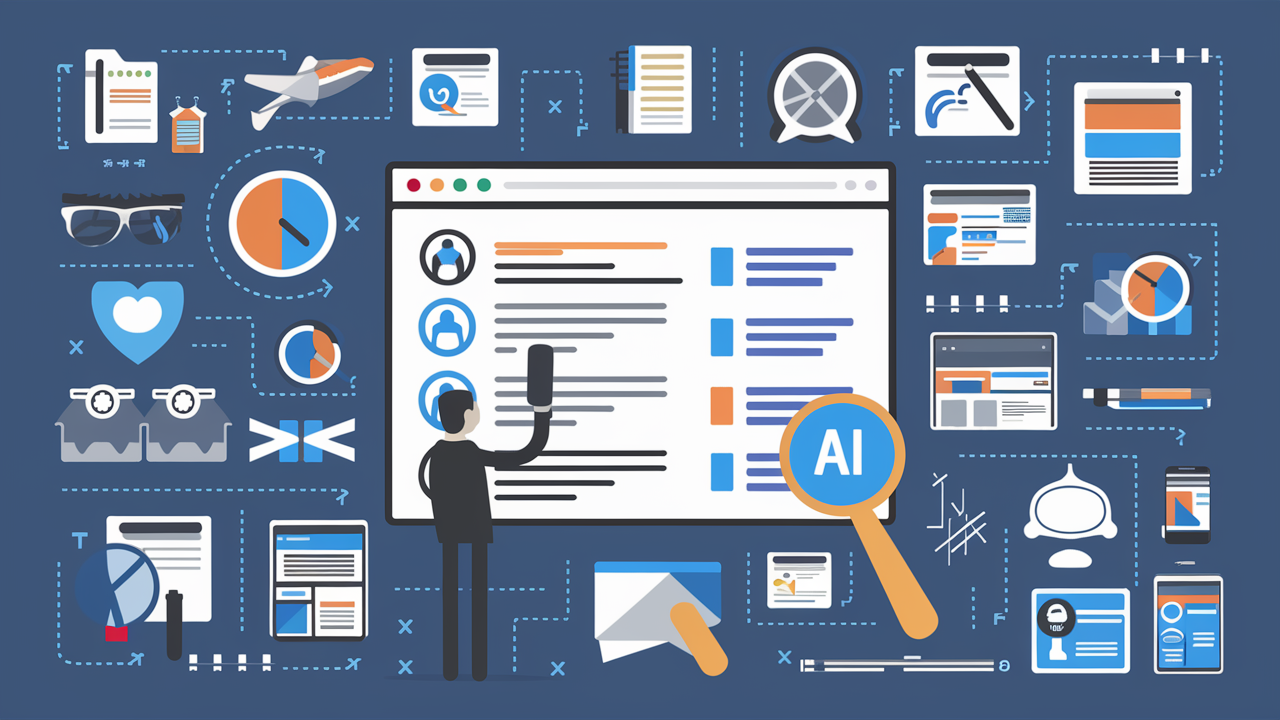TL;DR:
- AI-generated search results are reshaping how we access and interpret online information.
- Models like Google Bard and Gemini integrate context and intent to provide precise, high-quality results.
- SEO strategies must adapt to prioritize user experience and structured data for AI systems.
- Long-tail keywords and natural language content are critical for visibility in AI-powered search algorithms.
- Businesses and marketers can leverage AI-driven insights to stay competitive in this evolving landscape.
What Are AI-Generated Search Results?
AI-generated search results refer to content curated by artificial intelligence models instead of traditional algorithms. These systems, like Google’s Gemini or OpenAI’s GPT, use natural language processing (NLP) and machine learning to interpret queries more effectively. Unlike keyword-based searches, these models analyze intent, context, and even nuances, often generating conversational or nuanced responses.
In practical terms, when you ask an AI-powered search engine, “What’s a good camera for beginners?”, it might give you a well-rounded answer—offering key product recommendations, reviews, or use-case examples—without requiring you to scroll through multiple pages.
How AI is Changing Search Behavior
Personalized Experiences
AI understands searchers better than ever—customizing results based on search history, location, and behavioral data. For instance, typing “best Italian restaurants” in New York might suggest top-rated options near your location, factoring in recent trends and user preferences.
Efficiency and Context
A key advantage of AI-generated search results is efficiency. Models like Gemini sift through vast data sets, delivering concise, actionable answers. They also use context to interpret questions accurately. Whether your query is “pizza delivery near me” or “fine-dining Italian,” AI adapts based on tone and phrasing.
The Evolution of SEO with AI-Generated Search Results
For businesses and content creators, SEO remains vital, but the rules are shifting. Here’s how:
1. Emphasis on User Intent
Traditional SEO focused heavily on keywords. Today, intent-search optimization is the priority. For example, someone searching “how to fix a leaky faucet” likely wants a detailed DIY guide, not a sales pitch.
2. The Role of Structured Data
AI thrives on well-organized information. Utilizing structured data—like schema markup—helps AI crawl and understand website content efficiently, boosting rankings within AI-powered search engines.
3. Natural Language is Key
Search engines powered by models like Gemini and GPT perform better with conversational, human-like text. Content creators must focus on producing relevant, high-quality material written in natural language rather than stuffing keywords.
Actionable Ways to Optimize for AI-Powered Search Engines
- Focus on Long-Tail Keywords: For example, instead of “best laptops,” use terms like “affordable laptops for students in 2023.”
- Invest in Voice Search Optimization: Many AI systems power voice assistants. Ensure your content aligns with voice-based questions like “What’s the weather today?”
- Improve Technical SEO: Speed, mobile friendliness, and rich snippets all play a role in how AI systems rank your web pages.
- Leverage FAQs: Since AI models use conversational logic, answering common questions in a clear, organized format can boost visibility.
- Create Engaging Visuals and Infographics: AI often prioritizes multimedia-rich pages. Adding alt-text ensures accessibility for image-search AI.
Examples of AI-Generated Search Impacts
Example 1: An e-commerce store selling sneakers might notice that AI-powered search results prioritize concise product descriptions paired with user reviews. By integrating these elements, their chances of scoring higher rankings drastically improve.
Example 2: A blog offering career advice could benefit by structuring content around common queries like “How to write a resume for remote jobs.” AI identifies well-paired headings and segmentations, improving its relevance in results pages.
The Future of AI in Search Results
With advancements in AI, features like multi-modal searches (combining text, image, and video) may dominate the future. Google Gemini, for instance, could make it possible to upload a photo of a broken appliance and receive troubleshooting content paired with recommended repair services in your area.
Additionally, ethical AI practices—like minimizing bias—are becoming an important focus. As AI learns from human behavior, ensuring objectivity and reliable content will remain a top priority for tech companies.
Conclusion
Artificial intelligence is revolutionizing search behavior, influencing not only how we find information but also how businesses present it. Understanding AI-Generated Search Results: A New Era involves adapting your strategies for intent-driven, contextual, and personalized results. By embracing advancements in natural language content, structured data, and long-tail keywords, businesses and creators can stay ahead in this competitive landscape. The era of AI-powered search results isn’t coming—it’s already here.
Your Next Steps: Experiment with AI-driven SEO tools and refine your site for these emerging trends. Stay informed to continuously align your strategies with the digital future.

